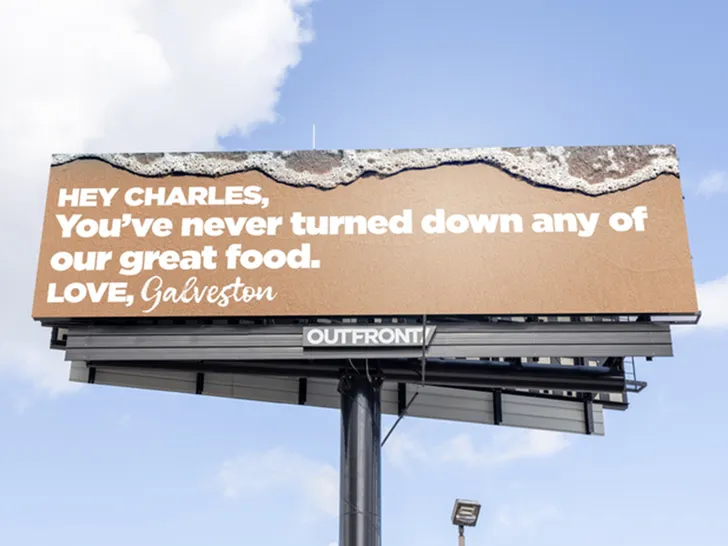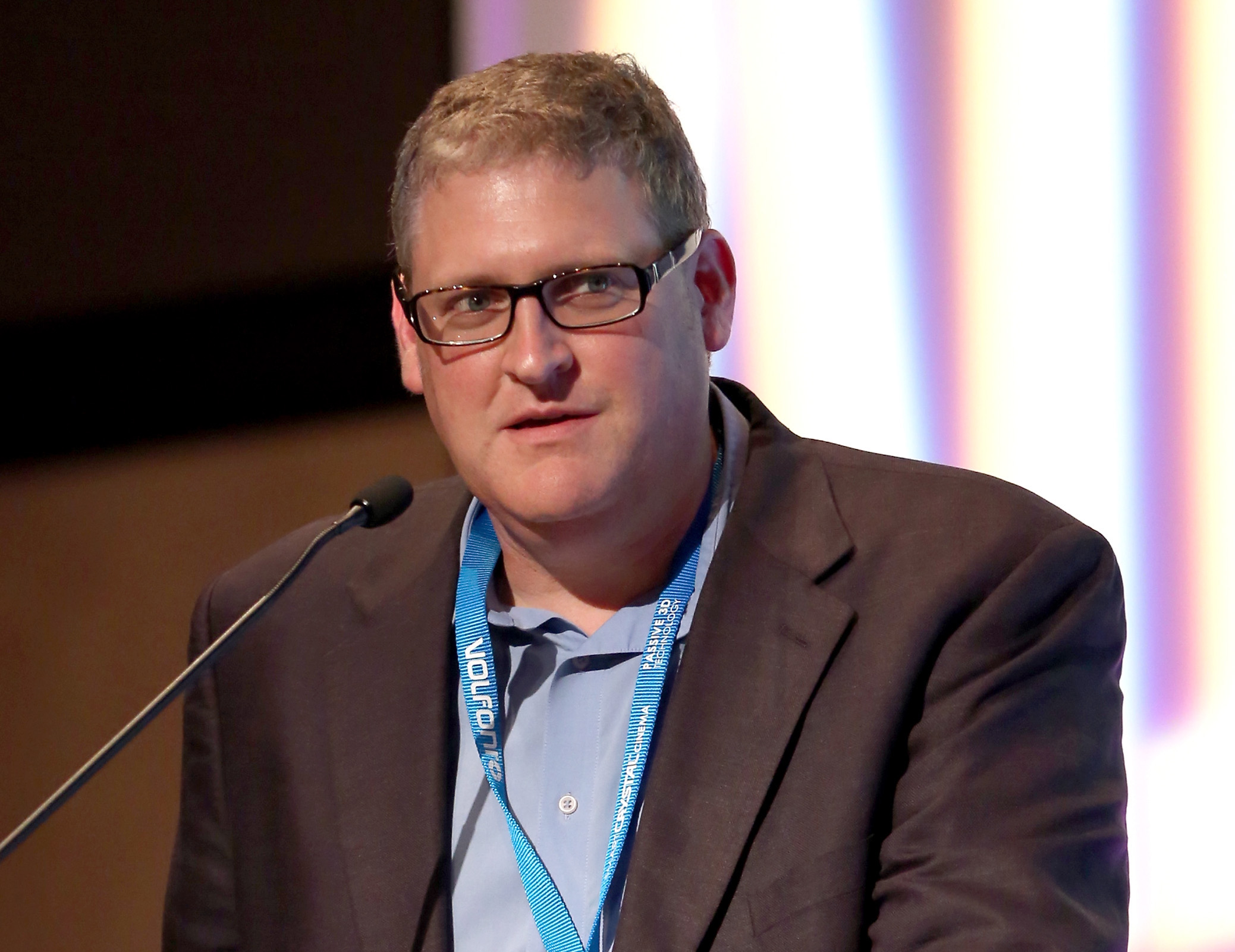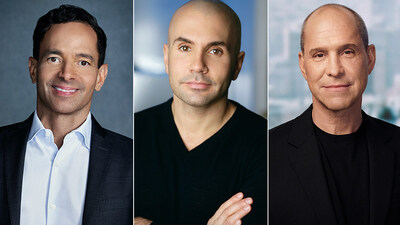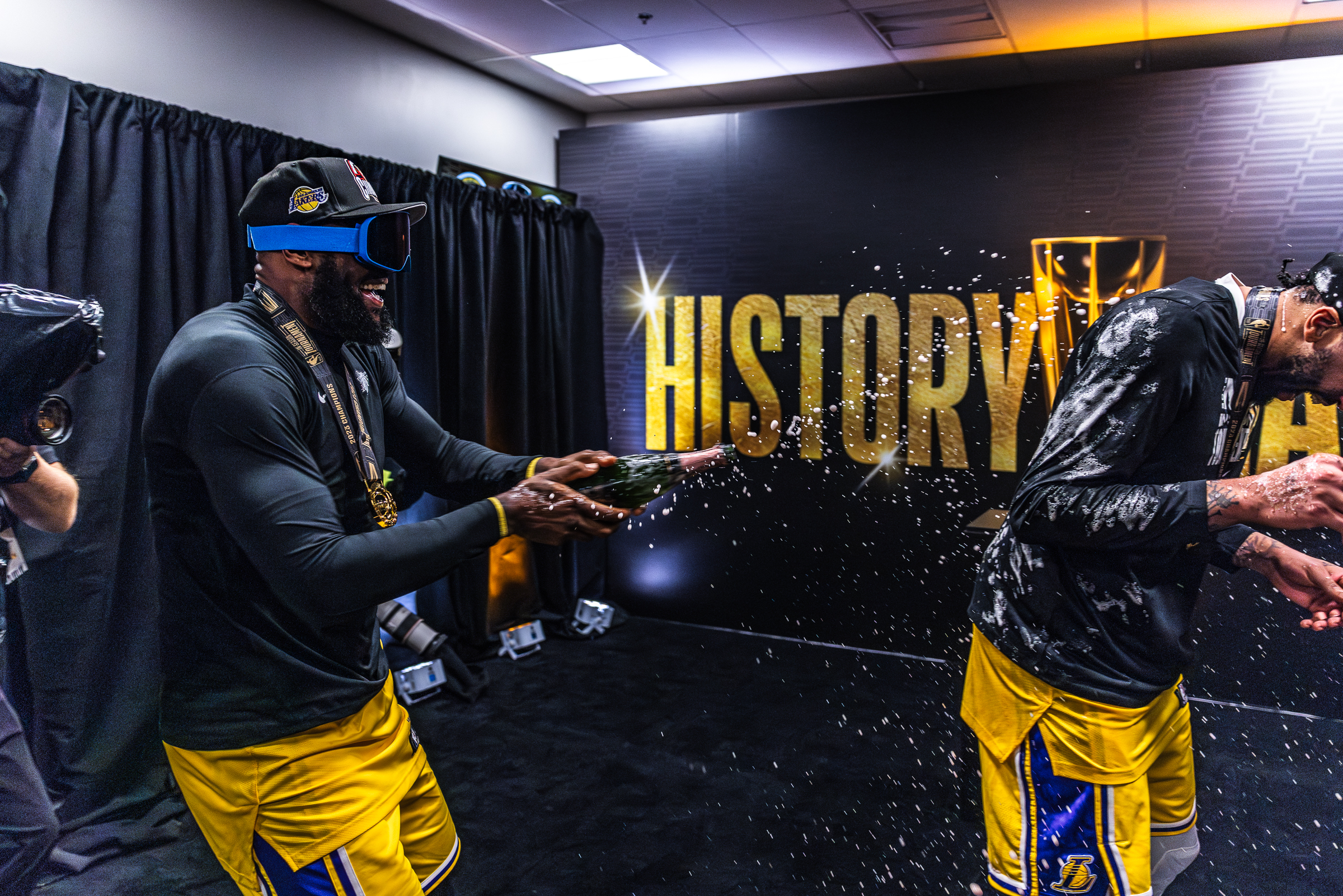
Each weekend, Next TV writers David Bloom and Daniel Frankel do a big favor for you, filling the big empty void in your soul with this column. We also tend to project a lot. Enjoy!
DANIEL FRANKEL: Good day to you, D Money! It's often said, but man, that was a week. I'm just gonna pick up where we left off. All sorts of discussions about Warner Bros. Discovery losing NBA rights to Comcast/NBCUniversal, and the fate of Inside the NBA along with that.
I don't know that the broader discussion about NBA TV rights right now fully rationalizes the value that TNT property holds for the league … and American pop culture. The things Charles, Kenny, Shaq and Ernie say about the game, its players, its coaches and executives, the fans … our towns and cities … everything, they matter in a culturally impactful way. I mean, Charles Barkley can riff on a Kobe Bryant highlight in an offhand way one night 15 years ago, calling the late great Lakers guard the “Black Mamba,” probably without even thinking about it too much, and it's now part of an iconic legacy that’s not quite Elvis but is certainly getting there. Charles can poke fun at the City of Galveston, Texas, and not only does it become a social meme, the city’s mayor actually responds with an outdoor campaign.

So we’re hearing this week from Barkley that he carved into his contract he signed with WBD two years ago that he can go somewhere else — Amazon included — if TNT loses the NBA. That deal was signed in 2022, after David Zaslav took over WBD. Please tell me Zaslav fully understood the leverage Warner was losing by surrendering that clause to Sir Charles.
DAVID BLOOM: The more interesting thing is whether Sir Charles understood the leverage that he had when making that 2022 deal. He sure did. The Chuckster has been a star since he was a round, reboundin’, rambunctious teenager. He knows his worth, what he has coming and what he can get away with. Remember, he’s the dude who effectively faced no consequences when peremptorily dealing with a series of idiot fans who got into his face (how drunk and dumb do you have to be to bait a superb athlete who’s 6’5”, 260 lbs., and notoriously unwilling to put with bull?). Everybody acts like WBD will do a Kristi Noem on the Inside the NBA team if they lose the rights. Of course not! The team will just move on, quickly. Zaslav will have to lay everyone off as fast as he can to salvage some tiny bit of cash flow to boost his pay next year.

Meanwhile, Amazon could recreate the entire show, triple everyone’s pay, call it Around the NBA and Galveston, and still not make any noticeable dent in the $143 billion in QUARTERLY revenues Amazon reported this week. Amazon profits came in at a hefty 18% above Street expectations. I’m amused that one possible reason WBD may lose out is that it doesn’t have a broadcast network. With regional sports networks and cable TV collapsing, the NBA wants the broadest possible reach for some games. That means NBC and ABC, not a WBD-owned descendant of WTBS, the Atlanta UHF station Ted Turner acquired 64 years ago and put on a primitive Macon, Ga., cable system to extend the reach of his station’s Atlanta Braves video rights.
FRANKEL: Just because Amazon can recreate Inside the NBA doesn't mean the delicate pieces will fall back into place. It's the busy season at TNT, and I've been very engaged as the first round of the playoffs have unfolded. Those organic moments this quartet and their producers manage to create on a regular basis shouldn't be taken for granted. Kenny Smith can simply slip on a stair, and Charles and Shaq will start a pandemic of laughter.
They make the NBA feel like a club we’re all kind of in, full of good-natured ball-busting (well, semi-good natured) and inside jokes. And these guys know the game so well. There’s so much “inside baseball” in regard to the glut of football (and hoops) studio shows. These guys, after decades, remain passionate and deeply knowledgeable about the game. It’s great, truly organic-feeling television. Again, it would be a shame if David Zaslav were to take this away, too. All that said, what do you think about a trio of executives managing Paramount? How does this power-sharing hive mind work? Is there precedent?

BLOOM: I’m going to be fascinated to see which hole is deeper for Zaslav: the one with NBA rights where they’re spending more than double what they have been, something around $2.5 billion a year, or the one without them, where there’s little reason other than a couple of weeks of March Madness to pay extra, either for WBD’s online sports standalone products, or for the fat carriage fees they still exact for TNT and TBS. As for the three-headed “Office of the CEO” structure now running Paramount, that is not built, management gurus would tell you, for the long haul.

It’s been done before. Back in the day, maybe 15 years ago, Warner Bros. had something like this, running a bakeoff post-Jeff Bewkes. Kevin Tsujihara won, until he lost the CEO gig for inappropriate behavior with an actress.
Also read: Paramount DTC Revenue Spikes 24% in Q1 While Losses Are Nearly Cut in Half
Normally you fall back on these kinds of structures to get through a transition, then find a permanent unitary CEO (or Co-CEOs, as at Netflix). Paramount is in even bigger trouble if Shari Redstone can’t do a deal and has to rely on this structure to fix everything. Decision-making can be complicated, and at the worst possible time. You know what else has three heads? Cerberus, the guard dog of hell. I think there’s a metaphor in there somewhere.
By the way, at Berkshire-Hathaway’s annual meeting Saturday, Warren Buffett took “100%" responsibility for buying millions of Paramount shares and then, in recent weeks, selling them all, losing “quite a bit of money.” The bad deal left him smarter than a couple of years ago, he said, but poorer, too. I'm guessing he won't be the only shareholder humbled by Shari's mess, but at least he won't have to worry about Shari's next bad move, or what kind of Cerberus guards Paramount's gates.
FRANKEL: Just back to the NBA for a second, one of the carrots the league has been throwing out there in negotiations, as it spreads rights thinner among telecast partners — the In-Season Tournament.
Also read: Netflix Has Early Interest in the NBA's New In-Season Tournament
Now, I enjoyed it as a Lakers fan. It did make those November/December early-season matchups a lot more interesting. But the Lakers, who were just eliminated by Denver for a second consecutive postseason last Monday, and just unceremoniously fired another head coach on Friday, are the poster child of why expending the calories and knee cartilage for the In-Season Tournament might not be such a good idea. For one, there was the hangover — the Lakers lost 11 of their next 15 games after winning the In-Season Tournament championship back in early December. Next was the ridicule. As they struggled just to get into the NBA playoffs and get a chance to compete for a real NBA championship, that faux banner hung at Staples Center (er, Crypto whatever) became a source of ball-busting from fellow players, coaches, team executives and pundits from around the league. Sure, the players all got paid an additional $500,000 to win the thing … but is anybody going to seriously compete for this trophy next year?

BLOOM: The NBA in-season venture, like mid-season European club soccer tournaments, will find its way to a more cherished status, particularly if someone such as Netflix gives it special treatment. Look how successful the UEFA Champions League is. I wouldn’t use the Lakers post-tourney slump (and reflexive need to fire yet another perfectly capable coach) as indicative of anything. Plenty of players said the extra $500K was definitely a mid-season motivator. People will play, other people will pay, it’ll become a thing. And coach-killer LeBron James can comfort himself knowing he won the first one. The thing that most fascinated me this week was not Lakers drama but a lengthy Rolling Stone piece detailing the rapid rise in several, mostly Chinese production companies — ReelShort, DramaBox, ShortTV, SerialPlus, FlexTV — making crazy episodic series shot in the vertical aspect ratio that Quibi tried so unsuccessfully to monetize. But unlike Jeffrey Katzenberg’s billion-dollar folly, these guys are keeping production costs razor thin, with brutal filming schedules, (mostly white) no-name stars paid far below union scale, and what sure seems like AI-generated storylines and titles focused on keywords such as“billionaire,” “werewolf” and “vampire.” Actual shows include Oops! I Married a Billionaire CEO By Mistake, Flash Marriage to My Werewolf Husband, and My Husband Killed Me and Then I Won the Megaball.
These are easy to mock, but also represent a far bigger threat to Paramount, WBD and the rest than I think most Hollywood denizens may appreciate. These shows are finding the big three of the entertainment order — attention, engagement and revenue — at prices well below anything anyone in Hollywood is making. And if IATSE can’t find a way to head off another strike this summer, stuff like this is going to be everywhere.
FRANKEL: I want to talk for a moment about content that's too long … and about Jerry Seinfeld, and the absolute fecal shower he’s taking for his new Netflix movie, Unfrosted. I watched it Saturday night with the Mrs. on four hours of sleep and after being in the sun all day. So I wasn’t at my best for a 93-minute film with 42% Rotten Tomatoes critics aggregation, based on a high concept that might have played better as an SNL sketch … or at least a half-hour comedy. And I'll agree that Seinfeld, to a degree, has lost a step. A thirtysomething boomer standup riffing on Superman and cereal resonated quite a bit in the late 1980s/early 1990s. Not so much with today’s audiences, who seem to buy Larry David playing a seventysomething misanthropic Hollywood billionaire.
True, like Paul McCartney's Wings vs. John Lennon's short but nonetheless iconic solo career, Seinfeld’s silly love songs don't carry the same cultural edge as Curb Your Enthusiasm.
But despite my own dilapidated viewing state, I still found plenty to laugh at with Unfrosted, which puts a star-powered supporting cast featuring Jim Gaffigan, Amy Schumer, Hugh Grant, Melissa McCarthy and many other well-known comics to pretty good use. I mean, the Jon Hamm/John Slattery Mad Men cameo was worth the time I spent cursing as I booted up my underpowered, buggy Roku soundbar Saturday evening. It's just Netflix and chillin' ... it's not like this one movie is going to drive up your monthly SVOD bill, or you had to pay $15 for a ticket. Maybe this new Seinfeld dissonance comes from him going around saying that it’s the far left that destroying the comedy business by being offended by everything? I don't love giving the far right the ammo during an election year, but J.S. is hardly the only comic who has said that. And at least a few of us on the left agree with it, to a degree. Tell us, David, why have we turned on one of the most iconic comedians of the latter 20th century?
“Unfrosted” is Jerry Seinfeld’s directorial film debut. While writing the script about the making of the Pop Tart, he rewatched “Mad Men”.Seinfeld realized Don Draper existed around the Pop Tart invention and tapped Jon Hamm to do a cameo as the ad man.pic.twitter.com/RQJtW0moiuMay 3, 2024
BLOOM: Taste arbiters nearly a quarter of the way into the 21st Century turned against JSein in part because he's their parents’ iconic comedian, not theirs. His cultural presence this century has mostly been driving around in classic cars, kibbitzing with other, mostly aging (but still funny!) comedians. That's not a recipe for cultural relevance, especially compared to Curb Your Enthusiasm, which inexplicably stayed on air this entire century before recently coming to a merciful end. But critically savaging a Netflix comedy, from anyone, seems pointless. It just doesn't matter. Not a single bit. Speaking of aging 20th-century comedic icons, have you watched the past half-dozen Adam Sandler Netflix comedies? I haven't, but somebody does, because Ted keeps giving Adam money to do more. Regardless of the score from the increasingly rotten Rotten Tomatoes, the film worked for you, and probably a subset of other Netflix viewers, too. And that is literally the soul of the Netflix business plan.







